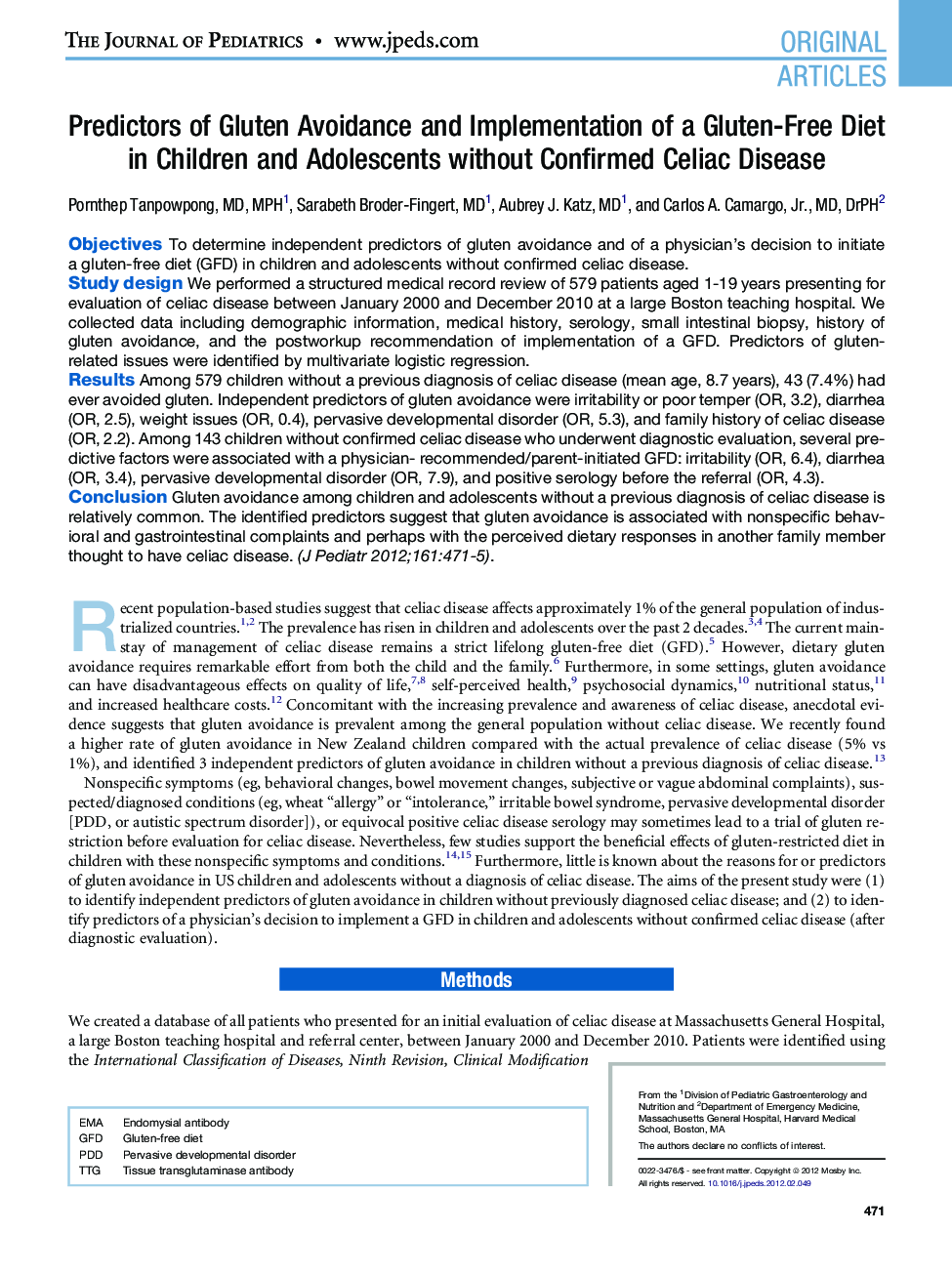| Article ID | Journal | Published Year | Pages | File Type |
|---|---|---|---|---|
| 6222383 | The Journal of Pediatrics | 2012 | 5 Pages |
ObjectivesTo determine independent predictors of gluten avoidance and of a physician's decision to initiate a gluten-free diet (GFD) in children and adolescents without confirmed celiac disease.Study designWe performed a structured medical record review of 579 patients aged 1-19 years presenting for evaluation of celiac disease between January 2000 and December 2010 at a large Boston teaching hospital. We collected data including demographic information, medical history, serology, small intestinal biopsy, history of gluten avoidance, and the postworkup recommendation of implementation of a GFD. Predictors of gluten-related issues were identified by multivariate logistic regression.ResultsAmong 579 children without a previous diagnosis of celiac disease (mean age, 8.7 years), 43 (7.4%) had ever avoided gluten. Independent predictors of gluten avoidance were irritability or poor temper (OR, 3.2), diarrhea (OR, 2.5), weight issues (OR, 0.4), pervasive developmental disorder (OR, 5.3), and family history of celiac disease (OR, 2.2). Among 143 children without confirmed celiac disease who underwent diagnostic evaluation, several predictive factors were associated with a physician- recommended/parent-initiated GFD: irritability (OR, 6.4), diarrhea (OR, 3.4), pervasive developmental disorder (OR, 7.9), and positive serology before the referral (OR, 4.3).ConclusionGluten avoidance among children and adolescents without a previous diagnosis of celiac disease is relatively common. The identified predictors suggest that gluten avoidance is associated with nonspecific behavioral and gastrointestinal complaints and perhaps with the perceived dietary responses in another family member thought to have celiac disease.
